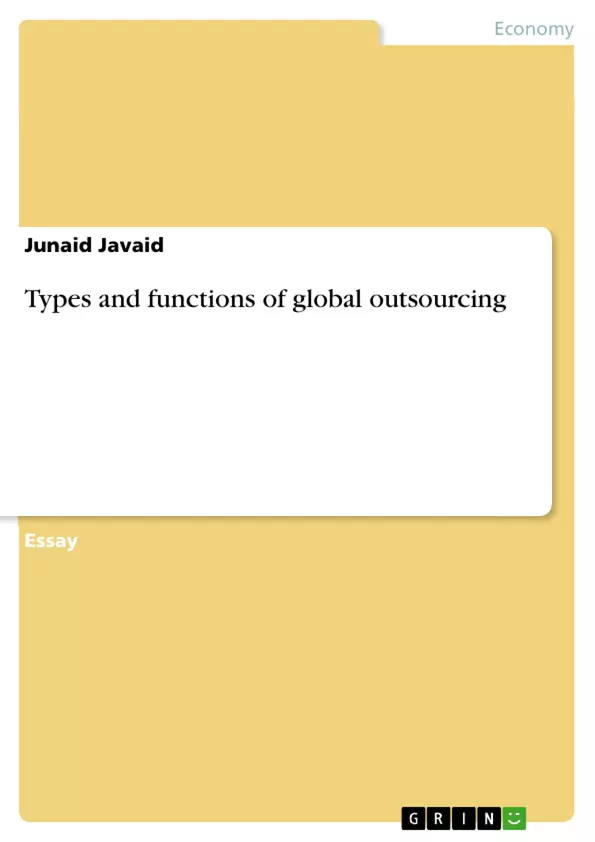This report is supposed to answer the question on the on-going issue whether The Ministry of Trade and Industry of developed countries should impose restrictions on outsourcing exporting countries, which pay lower wages to their employees. It therefore consists of five sections in which special focus is on literature review and recommendations to enhance the effectiveness of global outsourcing. Furthermore, different types and functions of outsourcing as well as its pros and cons will be discussed.
Table of Contents
- Introduction
- Background Context
- Research Question
- Literature Review
- Definition of Global Outsourcing
- Types of Global Outsourcing
- Functions of Global Outsourcing
- Different Countries & Global Outsourcing
Objectives and Key Themes
This report examines the question of whether developed countries should restrict outsourcing to countries with lower wages. It explores the impact of global outsourcing on economies and considers the arguments for and against imposing restrictions on outsourcing practices.
- The economic and political impacts of global outsourcing
- The role of technology in facilitating global outsourcing
- The benefits and challenges of outsourcing, including cost savings, talent acquisition, and potential job displacement
- The different types of global outsourcing, specifically nearshore and offshore outsourcing
- The impact of global outsourcing on various countries and industries
Chapter Summaries
The report begins with an overview of the topic and its significance, emphasizing the controversial nature of global outsourcing. It delves into the background context by explaining how global outsourcing has shaped the global economy. The research question is then clearly stated, focusing on the potential for restricting outsourcing practices. The Literature Review section offers a comprehensive analysis of global outsourcing, defining the concept, exploring its different types, and examining its functions in various industries. It also delves into the specific cases of outsourcing in countries like India and China, highlighting their role in the global outsourcing landscape.
Keywords
This report focuses on the key concepts of global outsourcing, its economic impact, and the arguments surrounding its regulation. It examines the roles of technology, cost savings, talent acquisition, job displacement, and the different types of outsourcing. The report also explores the impact of global outsourcing on specific countries, highlighting the role of India and China in the global outsourcing market.
Frequently Asked Questions
What is the difference between nearshore and offshore outsourcing?
Offshore outsourcing involves relocating business processes to distant countries, while nearshore outsourcing refers to moving them to neighboring or nearby countries.
Should developed countries impose restrictions on outsourcing?
This is a controversial issue; the report discusses arguments regarding job displacement in developed nations versus economic efficiency and cost savings.
How does technology facilitate global outsourcing?
Advanced communication technologies and digital platforms allow companies to manage operations and acquire talent across different geographical locations seamlessly.
What roles do India and China play in the outsourcing market?
India and China are major hubs for global outsourcing due to their large talent pools and lower labor costs compared to developed nations.
What are the main benefits of global outsourcing for companies?
The primary benefits include significant cost savings, access to specialized global talent, and increased operational flexibility.
- Quote paper
- Junaid Javaid (Author), 2012, Types and functions of global outsourcing, Munich, GRIN Verlag, https://www.grin.com/document/281642



